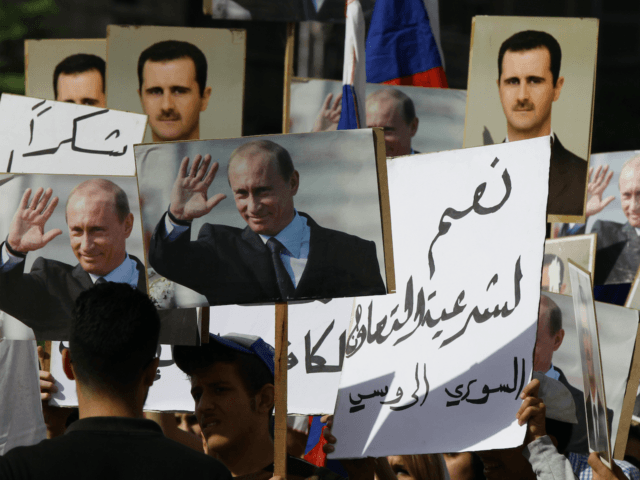TEL AVIV – In recent weeks, Syrian President Bashar al-Assad’s forces have advanced in critical pockets of territory directly adjacent to ceasefire zones agreed upon in a number of areas, an Arab intelligence source told Breitbart Jerusalem.
The moves may help solidify major gains for Assad, and could aid in the Syrian army’s quick takeover of ceasefire zones if the international truce is called off.
According to the source, during the ceasefire in the Daraa Governorate in the south near the border with Jordan and Israel, “the Syrian army has advanced over the past few days in the Suwayda Governorate and has reached the border crossing between Syria and Jordan in the area.”
“And there’s no doubt that Syrian forces will aim to reach the Ramtha crossing in Daraa, also on the border with Jordan not far from Israel,” he said, referring to another area directly across from a ceasefire zone.
The Arab intelligence source also addressed the comments of Jordan’s communications minister, who said recently that Jordan is considering joint operation of the two border crossings between Jordan and Syria with the Syrian regime of Bashar Assad. The minister, Muhammad al-Mumani, said that if Jordanian authorities were confident that the security situation was moving in the right direction, there is no reason not to operate the border crossings, “on condition that there won’t be ethnic militias in the area of the border crossings.”
Al-Mumani was directly referencing the presence of Iranian forces and Shi’ite militias supported by the Islamic republic.
According to the Arab intelligence source, who is familiar with Jordan’s assessments, the minister’s comments reflect Jordan’s recognition that under of the auspices of the ceasefire in one part of the south, the Russians allowed Syrian government forces along with the Iranians and Hezbollah to advance in another part of the south and take control of one of the two border crossings.
The source noted, “In Jordan and Israel, Russian efforts to differentiate between Assad’s forces and the Iranians are being watched closely, but as far as these two countries are concerned, this is an Iranian threat that’s moving closer to these borders if the Russians provide the necessary guarantees that only the Syrian army will control the border.”
The source also said that the discussions that have been held in recent weeks between Russia, Jordan and the U.S. with cooperation from Israel regarding the ceasefire in the south focused on the need to distance the Iranians from any operative presence in that part of the border.
“For the Iranians, the advancement on the border with Israel from Jordan, and getting closer to the border on the Golan Heights, and of course, Hezbollah’s presence on the border between Israel and Lebanon, is a massive achievement that puts them in a much better situation than before the outbreak of the civil war in Syria,” said the source.
“Now everything must be done so that the progress of the Syrian army won’t bring them to the border and, for the Jordanians, to make sure they do not infiltrate the local tribes in the area.”
According to the source, the Russians have adopted the same line of policy in other areas of Syria where ceasefire agreements are in effect – like Homs and al-Ghouta in the periphery of Damascus – allowing the advancement of the Syrian army. This is taking place in areas adjacent to those under the ceasefire, he said, thereby leaving the areas of Homs and Damascus where ceasefires are in effect under rebel control with no military strategic depth.
This could lead to the military overpowering the anti-Assad rebels, as was the case in Homs, or a combination of a military effort and pressure to withdraw the rebels through local reconciliation agreements. In both scenarios, the result is the same, assessed the source: “The Syrian army under Assad crushes the opposition militarily and dramatically improves the position of the Syrian president in any future negotiations for a political settlement in the country.”
“It can be said that the Russians have helped Assad gain a strategic advantage in the war through the ceasefires even if in certain areas like the border with Turkey, pockets of resistance persist as they do in Idleb, but Assad will reach these as well with the backing of the Russians,” said the source.

COMMENTS
Please let us know if you're having issues with commenting.